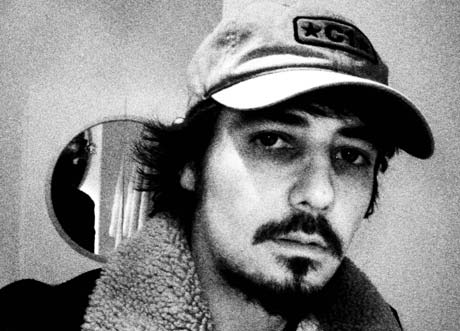The Montreal-based trifecta of British beat bastion Ninja Tune, French videogame publisher Ubisoft and experimental Brazilian expat Amon Tobin have joined forces to soundtrack Ubis impending Splinter Cell: Chaos Theory, a mega-anticipated sequel to the Tom Clancy game series. Working largely with heavily-tweaked acoustic samples, the albums densely cinematic atmosphere, like the games graphics, is stridently dark, with ominous loops, cavernous bass and the occasional disembodied voice further upping the creep-out quotient. But its not all tense background music for the stealth scenes theres some tense foreground tracks as well, most notably "Displaced, which brings in some Roni Size-sounding bass lines and skittery drum & bass beats. The junglisms come back even harder towards the end of closing cut "The Clean Up, which starts off methodically slow before going epileptic in presumed anticipation of one of the games violent fight sequences. As Ninjas historic 100th release, the album breaks Tobins far lengthier score into ten compressed and re-assembled compositions. While nothing here will stick in your head like, say, Super Mario, Tobin has gone beyond catchy melodies to raise the artistic bar on what game music is and what it can be.
Why do a game soundtrack? Theres only a certain amount of people that are ever going to hear what I do. So if youve got something like a game which is going to reach millions of people, its a way to get my music exposed without having to compromise. I feel like Im able to infiltrate heh heh a very big market and hopefully corrupt it along the way.
How do you approach a soundtrack vs. an album? It was a matter of making tracks that could be split into different layers and each would correspond to a different level of stress in the game. So youll be creeping around and might just hear strings and bass, then a guard spots you so the percussion gets layered on top and youll get full-on drums when youre in a battle situation. The music is all the same as on the record, but you wont hear the instruments in the same order. You could play the game in such a way that it matches up to the arrangement, in theory.
It must be hard scoring something that lasts so many hours. People are either going to want to kill me or buy my record. Well see how it goes when theyre stuck on level eight.
(Ninja Tune)Why do a game soundtrack? Theres only a certain amount of people that are ever going to hear what I do. So if youve got something like a game which is going to reach millions of people, its a way to get my music exposed without having to compromise. I feel like Im able to infiltrate heh heh a very big market and hopefully corrupt it along the way.
How do you approach a soundtrack vs. an album? It was a matter of making tracks that could be split into different layers and each would correspond to a different level of stress in the game. So youll be creeping around and might just hear strings and bass, then a guard spots you so the percussion gets layered on top and youll get full-on drums when youre in a battle situation. The music is all the same as on the record, but you wont hear the instruments in the same order. You could play the game in such a way that it matches up to the arrangement, in theory.
It must be hard scoring something that lasts so many hours. People are either going to want to kill me or buy my record. Well see how it goes when theyre stuck on level eight.
